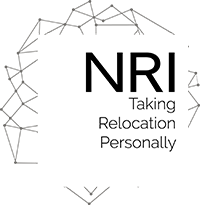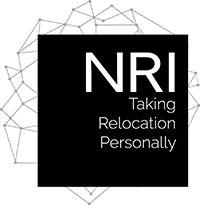Experts say relocating is one of the things most people find highly stressful. When employees relocate for a new position, it usually means leaving a place filled with familiar places and faces for somewhere unfamiliar where they have few, if any, connections. Add in adjusting to a new job and new co-workers, while trying to settle into a strange place among strangers, and relocating is a challenge.
If your relocating employee has a spouse or partner who agrees to move with them, your HR department has to consider another person who may be  struggling with the transition and change. While the partner or spouse may not be your employee, their happiness (or lack of it) will certainly have an effect on your employee. In fact, for the partner or spouse, the stress and frustration may be even greater than it is for the relocating employee. The employee is moving to accept a new opportunity, filled with potential and promise. For the partner or spouse, the future may seem a lot less rosy.
struggling with the transition and change. While the partner or spouse may not be your employee, their happiness (or lack of it) will certainly have an effect on your employee. In fact, for the partner or spouse, the stress and frustration may be even greater than it is for the relocating employee. The employee is moving to accept a new opportunity, filled with potential and promise. For the partner or spouse, the future may seem a lot less rosy.
A few things to consider.
Relocation can put a lot of stress on relationships. The trailing partner may feel resentful, left out, and uncertain about their job prospects. The idea of including spousal or partner support planning as a part of your company’s relocation offer may seem unnecessary – until you consider the impact relationship stress can have on your relocating employee’s ability to focus and perform at the top of his or her potential.
Being aware of the challenges your employee’s partner may be experiencing, and including them with a plan to help them transition, helps your relocating employee to be fully functional and focused in the new location, right from the start.
What’s more, most relocating families notice and appreciate a company’s care and concern when they are uprooting their lives for career reasons.
The partner’s career.
Relocations are often most difficult for couples where both individuals are working professionals. Consider that, if the relocating employee has accepted a new opportunity far away, the partner will probably have to give up their job in order to accompany them.
If the partner is unhappy in their current job, they may view a relocation assignment as a welcome exit that allows them to maybe take some time off and start fresh. But if the partner is happy with his or her current job, relocating is a sacrifice because they will be giving up a job and career they enjoy to move to something uncertain and unknown.
Working with a certified relocation consultant helps the partner research opportunities in their current field or explore new career paths before the move. If he or she will be relocating to an area with limited opportunities in their field, they will have the opportunity to work out ways to adjust to the new circumstances. This also gives the couple a chance to make sure that, after relocation, their finances are going to be adequate to maintain the standard of living they desire. Either way, the trailing partner will not feel misled and cheated, since they will have had the opportunity to explore their options.
The new home and neighborhood.
No one wants to pack up and move across the country only to be stuck in a small apartment for months while they try to find a suitable home for their family. Finding and selecting a new home plays a critical part in a transferring employee’s perception of satisfaction with their decision.
Of course, depending on the timing, you may have to provide the family temporary housing, but your company should consider including a familiarity tour of the new location for the family in your relocation offer. If you prefer to outsource this part of the relocation, work with a corporate relocation services provider to smooth the path for your employee and their family through home finding, researching neighborhoods and schools, locating important community services and similar important tasks. The earlier your employee and their family can “put down roots” in their new community, the more likely it will be that your relocation will be successful.
Given the considerable cost of employee relocations, it only makes sense to structure your relocation program to give your company the greatest chance of success. As you’re planning the components of your company’s relocation program, it is well worth your time to consider integrating partner support into your policy. Doing so will make your relocation offer more attractive to your talent. And, because “reluctant partner” is one of the top reasons why relocations fail, you’ll be improving the chances that your valuable employee and their partner will successfully navigate the stresses of relocation.


